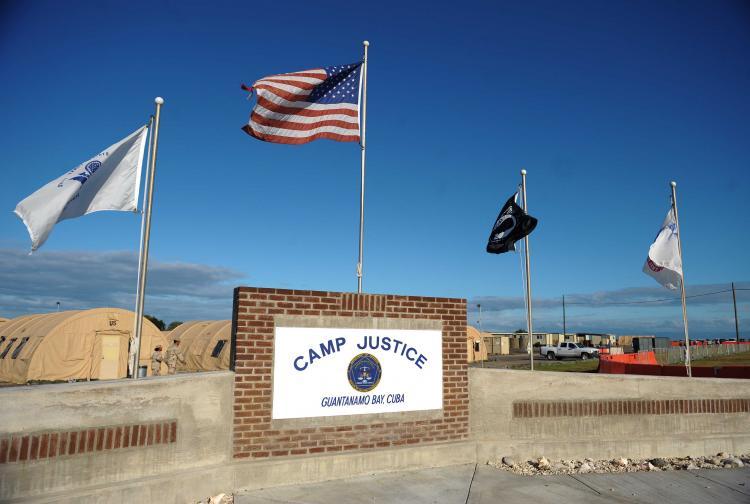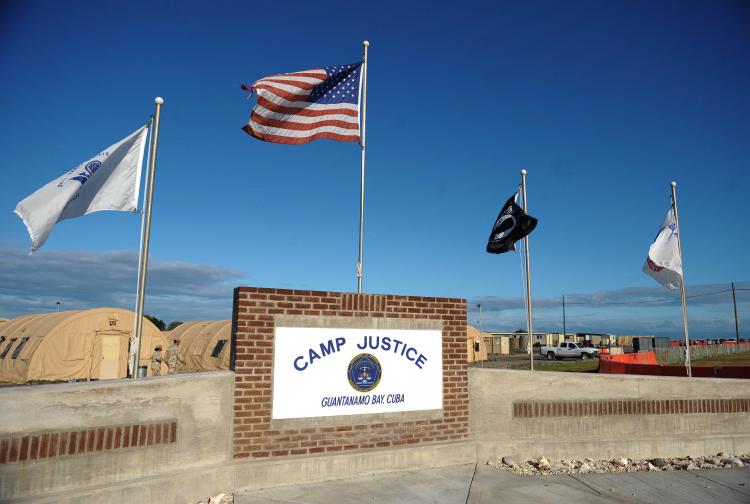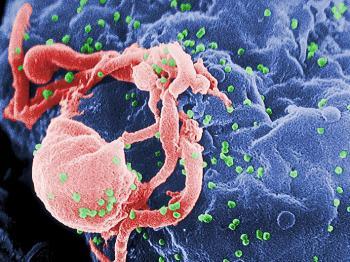President-Elect Barack Obama has confirmed that he will follow through with his promise to close down the Guantanamo Bay Prison Facility. What once was considered the cornerstone of the United States’ efforts to combat terrorism, Guantanamo has become synonymous with torture and abuse.
Originally established in the 1970’s, Guantanamo was used to house Cuban and Haitian refugees. After the attacks on the Pentagon and World Trade Center on Sept. 11, 2001 and the subsequent war in Afghanistan, Guantanamo has been used as a detention center for those designated as “enemy combatants” by the United States.
The prison facility has been built up in recent years by multimillion-dollar contracts with defense contractor Halliburton, to which American Vice President Dick Cheney had been chairman and CEO.
Controversy has plagued the facility in recent years. Hundreds of men suspected of links to terrorism or al-Qaeda were held without trial as “unlawful enemy combatants”. Detainees are subject to such “coercive management techniques” as sleep deprivation, prolonged constraint, and “exposure”. Reports of torture, emasculation, and religious persecution have become common.
There are guidelines for the treatment of captured enemy combatants presented in the Geneva Convention, which strictly forbids the use of torture. However the question has been proposed as to whether or not the Geneva Convention applies to al-Quaeda and Tailiban fighters. Some claim the Geneva Convention only applies to uniformed soldiers and guerrillas who wear distinctive insignia, bear arms openly, and abide by the rules of war.
Jim Phillips, who studies foreign affairs and security issues at the Heritage Foundation, has said, “Some of these terrorists who are not recognized as soldiers don’t deserve to be treated as soldiers.”
Since the specter of Guantanamo Bay has tarnished the image of the United States at home and abroad, President-Elect Barack Obama has declared that he intends to close the prison. U.S. Defense Secretary Robert Gates has begun drafting plans for the closure of the prison and what to do with the remaining prisoners.
Pentagon spokesman Geoff Morrell said Mr. Gates - who is to retain his position in the new administration - had wanted to be prepared in case Obama wished to tackle the issue “early in his tenure”. “He has asked his team for a proposal on how to shut it down, what will be required specifically to close it and move the detainees from that facility, and at the same time protect the American people from dangerous terrorists,” he said.
This may be easier said than done, however. Vice President Dick Cheney pointed out in an interview with ABC’s Jonathan Karl, “Now, the question, if you’re going to close Guantanamo, what are you going to do with those prisoners? One suggestion is, well, we'll bring them to the United States. Well, I don’t know very many congressmen, for example, who are eager to have 200 al Qaeda terrorists deposited in their district.”
Overall the decision has been met with a great deal of support. Rob Freer, Amnesty International’s researcher on the USA, said in a press release, “Amnesty International welcomes the president-elect’s confirmation that he intends to close Guantanamo and ensure that the USA does not use torture. We urge him to seize the initiative after taking office in January and to prioritize ending all internationally unlawful detention and interrogation practices by the USA.”
Although it remains to be seen how and where the detainees will be held or tried, Obama said he plans to have Guantanamo closed within two years.
Originally established in the 1970’s, Guantanamo was used to house Cuban and Haitian refugees. After the attacks on the Pentagon and World Trade Center on Sept. 11, 2001 and the subsequent war in Afghanistan, Guantanamo has been used as a detention center for those designated as “enemy combatants” by the United States.
The prison facility has been built up in recent years by multimillion-dollar contracts with defense contractor Halliburton, to which American Vice President Dick Cheney had been chairman and CEO.
Controversy has plagued the facility in recent years. Hundreds of men suspected of links to terrorism or al-Qaeda were held without trial as “unlawful enemy combatants”. Detainees are subject to such “coercive management techniques” as sleep deprivation, prolonged constraint, and “exposure”. Reports of torture, emasculation, and religious persecution have become common.
There are guidelines for the treatment of captured enemy combatants presented in the Geneva Convention, which strictly forbids the use of torture. However the question has been proposed as to whether or not the Geneva Convention applies to al-Quaeda and Tailiban fighters. Some claim the Geneva Convention only applies to uniformed soldiers and guerrillas who wear distinctive insignia, bear arms openly, and abide by the rules of war.
Jim Phillips, who studies foreign affairs and security issues at the Heritage Foundation, has said, “Some of these terrorists who are not recognized as soldiers don’t deserve to be treated as soldiers.”
Since the specter of Guantanamo Bay has tarnished the image of the United States at home and abroad, President-Elect Barack Obama has declared that he intends to close the prison. U.S. Defense Secretary Robert Gates has begun drafting plans for the closure of the prison and what to do with the remaining prisoners.
Pentagon spokesman Geoff Morrell said Mr. Gates - who is to retain his position in the new administration - had wanted to be prepared in case Obama wished to tackle the issue “early in his tenure”. “He has asked his team for a proposal on how to shut it down, what will be required specifically to close it and move the detainees from that facility, and at the same time protect the American people from dangerous terrorists,” he said.
This may be easier said than done, however. Vice President Dick Cheney pointed out in an interview with ABC’s Jonathan Karl, “Now, the question, if you’re going to close Guantanamo, what are you going to do with those prisoners? One suggestion is, well, we'll bring them to the United States. Well, I don’t know very many congressmen, for example, who are eager to have 200 al Qaeda terrorists deposited in their district.”
Overall the decision has been met with a great deal of support. Rob Freer, Amnesty International’s researcher on the USA, said in a press release, “Amnesty International welcomes the president-elect’s confirmation that he intends to close Guantanamo and ensure that the USA does not use torture. We urge him to seize the initiative after taking office in January and to prioritize ending all internationally unlawful detention and interrogation practices by the USA.”
Although it remains to be seen how and where the detainees will be held or tried, Obama said he plans to have Guantanamo closed within two years.



